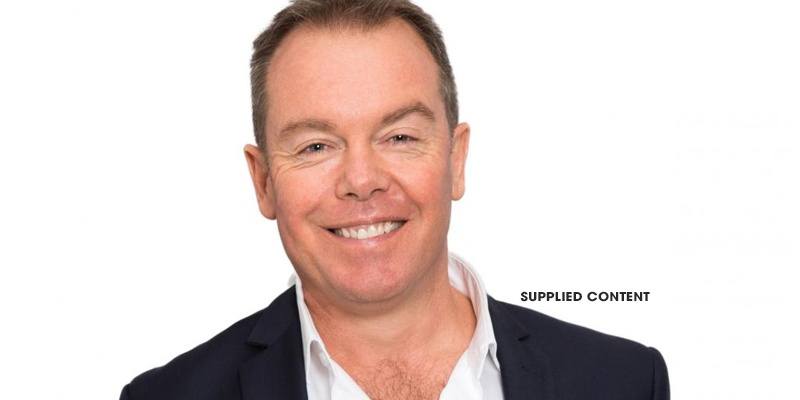Helping business owners transition to retirement
Hastings-based Barry and James Rosenberg are the father and son team behind 65 Not Out – a subscription-based online resource to help people transition from business to retirement. Not surprisingly, […]
Hastings-based Barry and James Rosenberg are the father and son team behind 65 Not Out – a subscription-based online resource to help people transition from business to retirement. Not surprisingly, feedback has been very positive.
As manager of a lifestyle village in Hawke’s Bay, James Rosenberg had observed how quickly some people can deteriorate mentally and physically after they end their working careers and take up retirement.
His father, Barry Rosenberg, a chartered accountant entering retirement age, has held a career-long passion for family business and farm succession and exit. He too understands this phase of a person’s life that can be “grossly uncertain, unless something is planned for them to retire to”.
Father and son were on the same page – what the world needs is a website to assist people transition from their structured, busy working lives to one that’s filled with choices in retirement.
A website that could reinvent retirement.
That website took three years to build – and on September 1st 2019 65notout.com went ‘live’.
It has being continually expanded and currently has 40 articles in a wide range of retirement-related issues everyone will need to consider.
It’s the change of routine that most people struggle with when transitioning from work to retirement, explains Barry. “All of a sudden they have a lot more spare, idle time.”
He says the majority of people leave exit planning too late, and therefore it’s difficult to achieve best future outcomes. His Master’s degree research confirms this – no participants in his study had considered their business exit more than five years out from their exit date.
Business/farm succession planning and exit is a major issue around the world. On New Zealand family farms it is a particularly large and difficult issue. “I have assisted 15 families with succession since 2011 and we’ve only made it to the implementation stage of the plan twice,” says Barry.
He’s identified ten ways to exit a business and is planning a book around them (along with another on family business and farm succession). He also believes that the transition from business ownership to retirement is helped by two modern trends these days: the requirement to stay on in a business for up to two years after its sale to maintain relationship continuity, and step payment of the sale proceeds.
“Normally EBIT performance targets are set to be achieved for two to three years, otherwise payment is often not made in full,” Barry explains. “This is a further incentive for the exiting owner to stay employed/engaged in the business.
“However, if there is no provision or agreement for a departing owner to stay on, then that business owners no different from anyone else transitioning from working life to retirement.”
Barry believes the best outcome lies, if possible, in a ‘phasing out retirement’, where a person’s work hours gradually decrease over say a two-year period – providing time to plan the next phase to retirement.
“From a business perspective, ‘letting go’ the business is a human nature trait that many business owners find very hard to do; but if planned well beforehand, the transition can be a whole lot easier,” he says. Outgoing generations’ reluctance to ‘let go’ is the biggest barrier challenge to family business and farm succession.
As expected for a start-up business, 65 Not Out has been a major learning curve for its founders.
Feedback has all been very positive. In the website’s nine sections Barry and James believe they have all areas of retirement covered. But while the website’s Money & Finances section covers how much money you need to retire on (to supplement National Superannuation), Barry and James have learnt that a more important topic is Health & Wellbeing, particularly the importance of staying active mentally and physically.
“We believe health is number one, because if you don’t have it, then basically you haven’t got anything,” says Barry.
Motivation and goal
A great deal of time, planning, money and intellectual property have gone into the making of 65 Not Out – and that’s an ongoing process, explains Barry, particularly with new content. Although it’s a subscription-based business model, profit has never been the main driver for its development.
“Our motivation and goal are to take 65 Not Out to the world’s one billion people over the age of 60 – to make a difference to their lives in planning and experiencing their retirements,” he says. “We’ll be using future profits to assist research into issues that affect older generation people, such as Alzheimer’s and dementia, and other worthwhile issues that affect an ageing population.
“So yes, profit generation is important. However, we believe profit will look after itself if we achieve our primary goal of getting 65 Not Out to the world.”
Retirement with a purpose
There’s ample evidence that people are now living healthier for much longer, and so the viewpoint of 65 Not Out is that the current accepted retirement age of 65 is set a little too low.
“We encourage people who’re still healthy and are happy working to keep going,” says Barry. “Technology and health medication are allowing quicker recovery from illnesses; 65 is just a number and if people haven’t got something to retire to, then they should keep going until they do. Do not retire to nothing.”
‘Baby Boomers’ have a sense of entitlement and don’t want the retirement age lifted, he adds. Economically, as people live longer, this will unquestionably put further pressure on the country’s finances. “Is the current retirement model of national superannuation levels sustainable? I personally do not think so.”
65 Not Out is all about preparing business owners, and anybody approaching retirement, with the tools they need to confidently prepare for their retirement – to help them prepare as well as they can for life after work.
“Retirement should be the best years of a person’s life, spent doing what they ‘love’ doing,” says Barry. “But for so many this is not the case for whatever reason. In fact, sadly it is the opposite.”
Better sooner than later
Exiting his chartered accounting practice proved more challenging than predicted for Barry Rosenberg.
“About three years ago I outlined my future plans which recorded my exit from our firm at Christmas 2019. Having identified my successor and implementing the transition process over 2.5 years, my successor unfortunately exited a year early due to a health issue.”
This necessitated Barry staying on longer than he expected.
“This confirms the importance of what 65 Not Out is largely about. Beginning the processes of planning business succession/exit and retirement earlier rather than later.”



